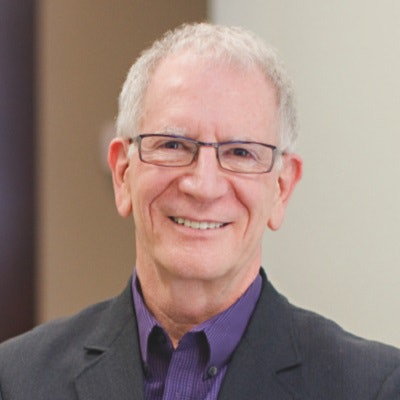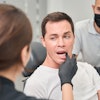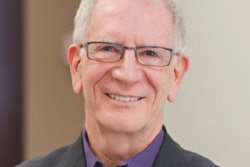
Sometimes when my patients ask me about what they should eat, I give them a little background information.
I remember going to the Smithsonian Institute in Washington, DC, as a child. My favorite exhibits were the dinosaurs. I was in awe with the age of these beasts. Skeletons told a fascinating story to me as a child.
Today, skeletons still tell the story.
Adaptation
 Alvin Danenberg, DDS.
Alvin Danenberg, DDS.Human bodies have slowly adapted to our environment and the foods that were available to us for nutrition. Our bodies developed a method of using nutrients for our growth and survival.
But what does this have to do with skeletons and my patients' health?
Today, DNA testing can look at dental remains of human skeletons and determine what types of bacteria existed in the dental plaque of these people. We now can determine how healthy our evolutionary ancestors were.
The DNA taken from teeth of skeletons dating about 20,000 to 10,000 years ago showed bacteria in the dental plaque were mostly not virulent and were in a state of homeostasis. In other words, our primal ancestors rarely demonstrated tooth decay or gum disease.
So why is tooth decay and gum disease more present now?
From about 10,000 years ago (when grains were introduced into our diets) until about 150 years ago, the plaque DNA became out of balance and unhealthy, and decay and gum disease began to become the norm. Then, 150 years ago (when flour and sugar became a staple of our diets), the bacteria went crazy, causing lots of decay and gum disease.
“We must work in concert with the needs of our bodies.”
I tell my patients that the balance of bacteria that our species developed during 2.5 million years of evolution slowly began to change to an overproduction of unhealthy types because of the insult from these unnatural foods. Unfriendly bacteria began to break down our intestinal cells. Food particles and bacteria that were never supposed to leak into our blood system began invading our bodies.
Our bodies have not had time to evolve to compensate for these rapid insults. Degenerative diseases that were never part of the human experience began to emerge.
Today, genetically modified foods that never have been tested over time in humans also have negatively affected our gut bacteria. In addition, toxic additives in processed foods have been accumulating in our bodies contributing to our problems. Other insults to our gut include some medications, dirty electromagnetic fields, chemical residues on our foods, unnatural light sources, emotional stress, overexercise, and poor sleep habits -- all can have a negative effect on our gut microbiome.
Unhealthy gut bacteria and associated gut disorders have been implicated in cardiovascular disease, high blood pressure, type 2 diabetes, and many more diseases and conditions. In short, we are living longer with decreasing quality of life because of an increase in degenerative diseases. And, in addition, our mouths are paying the price.
What can we do?
My patients ask me what they can do today to get back in shape? My recommendation is that we, as a society and individuals, need to look at evolution and how our bodies were designed to function and thrive. We must work in concert with the needs of our bodies.
From a dental standpoint, brushing and flossing are important, but healthy food choices and balanced gut bacteria are more important. We should eat the foods that give us nutrition and not destroy our bodily systems. We need to repopulate our gut bacteria with friendly types that can ward off disease and maintain a healthy intestinal environment.
I also tell them that they need to exercise their muscles hard, sleep seven to eight hours a night, deal with life's stresses more effectively, and remove all toxic elements that may damage the gut -- but that is a separate discussion.
A version of this column first ran on Dr. Danenberg's blog. DrBicuspid.com appreciates the opportunity to reprint it. His book Crazy-Good Living from Elektra Press is available here.
Alvin Danenberg, DDS, practices at the Bluffton Center for Dentistry in Bluffton, SC. He is also on the faculty of the College of Integrative Medicine and created its integrative periodontal teaching module. He also spent two years as chief of periodontics at Charleston Air Force Base earlier in his career. His website is drdanenberg.com.
The comments and observations expressed herein do not necessarily reflect the opinions of DrBicuspid.com, nor should they be construed as an endorsement or admonishment of any particular idea, vendor, or organization.

















